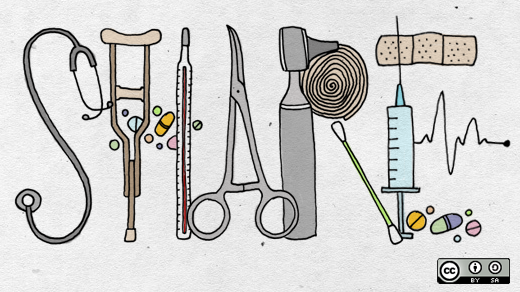In an old Seinfeld episode, Elaine visits her doctor and manages to sneak a peek at the physician’s notes. She sees she’s been labeled "difficult." The doctor grabs the notes from her and after a confrontation, jots down more notes. Later, Elaine convinces Kramer to try to get access to her chart, but he walks out empty-handed only to report, "they’ve now created a chart on me."
The Health Insurance Portability and Accountability Act (HIPAA) now allows patients access to their medical records, but few patients—like Elaine--have ever lain eyes on their records. And those who try commonly face bureaucratic obstacles and exorbitant copying fees.
One doctor thought that openly inviting patients to review these records could better engage patients, and increase their understanding of health and treatment regimens. So he decided to find out for sure.
In June 2010, Dr. Tom Delbanco and a group of researchers launched a year-long open access study named OpenNotes. The study, sponsored by the Robert Wood Johnson Foundation, involves more than 100 primary care physicians and approximately 25,000 patients from three healthcare centers—the Beth Israel Deaconess Medical Center in Boston, MA, the Geisinger Health System in Danville, PA., and the Harborview Medical Center in Seattle, WA. Throughout the study, patients who have just seen their doctors receive an e-mail pointing them to a secure web site where they can view their physician’s notes. The patients will receive a second e-mail message two weeks before any scheduled return visit, reminding them that the notes from their previous visit are available for review.
"The OpenNotes project aims to improve communication and transparency between doctors and patients," says Dr. Tom Delbanco, the lead investigator of the study. "We have one simple research question: After a year, will the patients and doctors still want to continue sharing notes?"
In addition, the researchers are monitoring the impact of note sharing, including patient engagement, patient and physician reaction, quality of communication, interactions, care and outcomes, as well as doctor workload levels.
In the July 20, 2010 issue of the Annals of Internal Medicine, the OpenNotes investigators published a perspective, "OpenNotes: Doctors and Patients Signing On."
And in the spirit of open source, Annals is providing the article free on its website.
Researchers believe that inviting patients to review the records not only improves patient understanding of their health. but can help them to stick to their treatment regimens more closely, truly improving health outcomes.
But, researchers also point to potential downsides: Physicians might edit their notes, potentially compromising care. Patients may worry if their doctor speculates about serious diseases like cancer or heart disease. Doctors might experience a flood of calls and e-mails when patients come across common medical terms or shorthand that can be taken the wrong way. For example, "SOB" refers to "shortness of breath", not a derogatory designation. And "NERD" is short for “no evidence of recurrent disease."
Dr. Delbanco suspects having access to these notes "will make patients more actively involved in their care, better educated about their illnesses, and better able to detect and prevent medical errors."
So what do you think? Should medical records be shared as interactive documents between patients and physicians? Can this new medical transparency work? Or will it unnecessarily worry patients like Elaine and overburden doctors who have to answer to even more concerns?




4 Comments